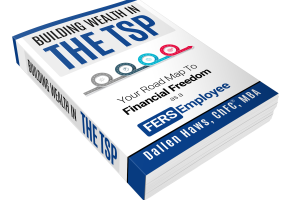Question 1
I retired and I want to make sure that my annuity is correct because my calculations don’t match the results from OPM.
I calculated my pension to be $3,451.66 per month before tax and deductions. However, they calculated it to come out to $3,123 per month. I don’t know if there is some secret thing that I don’t know or if I should challenge this amount. On top of that, it took them 1 year to come up with this amount!!
Answer 1
Without knowing more about your situation it is impossible for me to know if OPM’s number is right or wrong.
However, here are a few things to look into.
How many years of service do they show you have? Does it look accurate?
What high-3 are they using for you? Is that accurate?
Did you retire with a MRA+10 retirement and get an early retirement penalty?
Did you have any part-time service that lowered your pension?
Is this amount your net amount after survivor benefits have already come out?
Question 2
Currently my investment portfolio is about 90% Stocks and 10% Bonds. However, I am concerned about inflation and the market. What are your thoughts about going into the G Fund for ALL my TSP investments.
My TSP comprises about 30% of my investments so this would then put me at 70% Stocks and 30% G Fund overall. I know that the G Fund is currently only growing about 1% but I also know it will not lose money over time, whereas investing in bonds means you could lose some of your principle.
This way I would feel more settled because I know that a large chunk of my money would be safe from the stock market. I am currently 59 years old and WILL NOT need to tap into my TSP within the next 10 years.
Answer 2
Great question and I totally understand your concern.
And while I don’t know exactly what investment mix makes the most sense for you, I am concerned about investing too conservatively with money that you won’t need for 10+ years.
Because while there is certainly risk in the stock market, there is also inflation risk in the G fund. And while the G fund won’t go down in value, after inflation you could lose a lot of buying power.
But with that being said, I think the G fund is a pretty good replacement for bonds in general right now but you will want to make sure you have an appropriate amount of stocks vs. bonds (G fund) over all.
Question 3
Hello! I am eligible to retire with FERS at 62 in May 2023. But I am due for a Within Grade Increase in July 2023. Is there an advantage to waiting to retire until after the step increase? Thank you for your help.
Answer 3
To answer this question, you’ll have to understand why having a higher salary will help you (or not) once you retire.
Your salary will affect 2 primary things. Your pension and your annual leave payout.
First, your pension is affected by what they called your ‘High-3 Salary’. Your High-3 is simply your average annual salary during the 36 months of your career that you got paid the most.
And because most people get paid the most at the end of their career, their High-3 is often based on the last 3 years of their career.
But because your High-3 is an average of 36 months, retiring right after a within grade pay increase won’t make too much of a difference on your pension.
Whenever you retire with any unused annual leave then you will be paid a lump sum at retirement for the amount you would have earned if you would have continued to work for that amount of time.
And this payout will be paid at the rate you would have earned so waiting until a within grade pay increase could increase your annual leave payout by a decent margin depending on the pay increase and how much annual leave you had saved.


